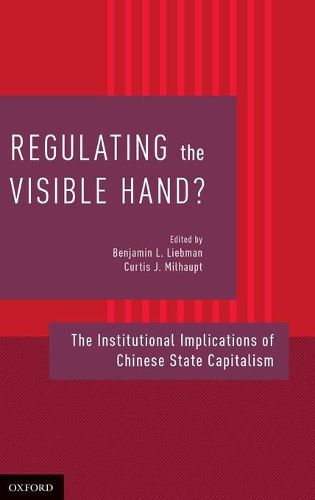Readings Newsletter
Become a Readings Member to make your shopping experience even easier.
Sign in or sign up for free!
You’re not far away from qualifying for FREE standard shipping within Australia
You’ve qualified for FREE standard shipping within Australia
The cart is loading…






The economic and geopolitical implications of China’s rise have been the subject of vast commentary. However, the institutional implications of China’s transformative development under state capitalism have not been examined extensively and comprehensively. Regulating the Visible Hand? The Institutional Implications of Chinese State Capitalism examines the domestic and global consequences of Chinese state capitalism, focusing on the impact of state-owned enterprises on regulation and policy, while placing China’s variety of state capitalism in comparative perspective. It first examines the domestic governance of Chinese state capitalism, looking at institutional design and regulatory policy in areas ranging from the environment and antitrust to corporate law and taxation. It then analyses the global consequences for the regulation of trade, investment and finance. Contributors address such questions as: What are the implications of state capitalism for China’s domestic institutional trajectory? What are the global implications of Chinese state capitalism? What can be learned from a comparative analysis of state capitalism?
$9.00 standard shipping within Australia
FREE standard shipping within Australia for orders over $100.00
Express & International shipping calculated at checkout
The economic and geopolitical implications of China’s rise have been the subject of vast commentary. However, the institutional implications of China’s transformative development under state capitalism have not been examined extensively and comprehensively. Regulating the Visible Hand? The Institutional Implications of Chinese State Capitalism examines the domestic and global consequences of Chinese state capitalism, focusing on the impact of state-owned enterprises on regulation and policy, while placing China’s variety of state capitalism in comparative perspective. It first examines the domestic governance of Chinese state capitalism, looking at institutional design and regulatory policy in areas ranging from the environment and antitrust to corporate law and taxation. It then analyses the global consequences for the regulation of trade, investment and finance. Contributors address such questions as: What are the implications of state capitalism for China’s domestic institutional trajectory? What are the global implications of Chinese state capitalism? What can be learned from a comparative analysis of state capitalism?